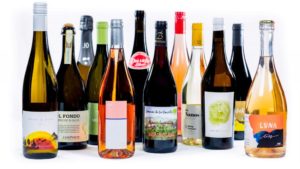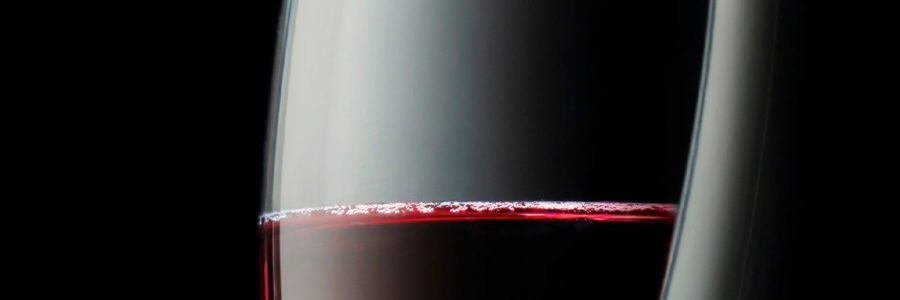All Natural Wine: The consumption of alcohol can be controversial in the world of health, but understanding how to buy and consume wine consciously is what makes all the difference. Today we explore the wonderful world of wine, including the problem with the factory-farmed wine industry compared to the natural dry-farmed wine industry and a few tips on consciously consuming wine.
![]()
This article has been medically reviewed by Dr. Charles Penick, MD![]()
The Problem with Wine
The main problem within the wine industry stems from the same greed and corruption that has affected the food industry. Massive corporate conglomerates fueled by Wall Street investors have largely taken over the wine industry. Fifty-two percent of America’s wine industry is produced by three multi-billion dollar conglomerates that hide between thousands of different wine labels 1.
So when you’re browsing the rows in your local wine or alcohol store, thinking that they are all competitors, the reality is that you are mostly browsing cookie-cutter, highly processed products made in big factories. This results in high profit over quality and leaves us with many poor-quality wines filled with sulfites, sugar, a high alcohol content, and glyphosate.
The problem starts with farming methods, including many pesticides and herbicides. One of the most common herbicides used in America is Glyphosate, a known neurotoxin 2. But using these farming toxins is just the tip of the iceberg with the problems of wine.
Another problem with the big alcohol producers is their use of irrigation during the growing process of their grapes. Water irrigation bloats the grapes with water, promoting disease in the vineyards and encouraging the use of more pesticides and herbicides. It also delays the picking season, which means higher sugar and alcohol content in your wine 3.
Irrigation is also one of the ways even certified organic wines become contaminated with glyphosate. As a result, glyphosate contaminates most samples of American-grown wines, organic or not 4.
Many of these enormous factory-made wines essentially produce the fast-food version of wine by processing grapes into wine. The FDA has approved 76 additives for winemaking, and the European Union allows 59 additives 5. They include:
Included among those additives are:
- Fining agents to reduce wine’s haziness and make it less bitter
- Colorants that change a wine’s color
- Defoaming agents that prevent wine from foaming
- Preservatives that prevent wine from spoiling
- Enrichment agents that change a wine’s flavor
- Fermentation enhancers that speed up and standardize the fermentation process
The wine industry across the world has successfully kept this a secret from you because there is no content labeling on wine bottles.
Natural Wine
The difference with natural wine starts with the growing process. All-natural wines are organic, but not all organic wines are natural. Natural wine is the pinnacle of healthy wine because it is not irrigated, fermented with wild native and indigenous yeast, and is additive-free.
The impact of natural wines extends far beyond the bottle itself. Natural winegrowers respect nature and encourage biodiversity, healthy soils, and land preservation. By emphasizing no irrigation in dry farming, millions of gallons of water are saved yearly. By supporting small organic growers, natural wine farming empowers them to continue regenerative agriculture and teaches their neighbors to do the same.
Pure Natural Wine is rare. Less than 0.01% of the world’s wines are estimated to meet the strict criteria for authentically natural wine.
What is Dry Farming?
Dry farming is one way to grow grapes that produce incredible health benefits in your wine 6. Growing grapevines without irrigation results in vine roots that grow much deeper into the soil in search of water, picking up more nutrients and minerals along the way. This method supports a rich bio-diverse soil, which translates to more mineral-rich and better-tasting wine 7.
Without irrigation, the vines are also not exposed to the many chemicals found in tap water, including glyphosate. This helps mitigate the exposure to unnecessary chemicals, often finding their way into even certified organic vineyards otherwise.
When vineyards are irrigated, the grapes also have a much higher water content which delays the picking season. The longer they grow on the vine, the more sugar the fruit accumulates. As a result, non-dry farmed wines contain a much higher sugar and higher alcohol content than dry-farmed ones (since the fermentation process is driven by the bacteria that consume sugar) 8.
Most European countries with a long history of traditional winemaking, like Italy, have banned irrigation in winemaking. This is because they understand the detrimental impact of irrigation on the quality of their soils and the wine.
It’s not rocket science: if you bloat a grape with water, it dilutes its contents. As a result, the wine made from irrigated fruit has a lower quality of character, less depth of flavor, fewer nutrients, and more sugar!
How to Drink Consciously
The three pillars of conscious wine consumption are what you drink, when you drink, and how you drink. What you drink is all about wine quality, and the peak of quality is natural dry-farmed wine. This ensures your wine is toxin-free, without nasty additives, fermented properly, with low sugar and low alcohol content.
When you drink is not just about frequency but also what your wine is paired with. You can consume wine consciously daily, so long as your relationship to the experience is sacred. When you invest in natural wine and start to understand and value the power of healthy wine, the whole experience becomes ceremonial and sacred.
How you drink relies on mindset and setting. Going into any wine-drinking experience with this sacred mindset, and surrounding yourself with loved ones, family, and friends creates the ultimate environment. Even if you are drinking alone, create an experience out of it. Avoid drinking wine mindlessly in front of the TV or in a rush. Instead, slow down, be present, and engage with your natural wine from a place of reverence and gratitude.
Dry Farm Wines

Dry Farm Wines pure Natural Wines are lab tested to ensure each bottle is sugar-free (0-0.15g per glass), lower in natural sulfites, and lower in alcohol (between 7% and 12.5% alc/vol). In addition, the wines are friendly to low carb, Paleo, ketogenic, and low sugar diets. Dry Farm Wines is proud to be the largest Natural Wine merchant globally, bringing awareness to Natural Wine consumption and supporting farmers who honor the soil.
<<<<Use This Link to Get 10% off of Dry Farms Wines>>>>
Summary
The problem with the wine industry is rooted in the conglomeration of big-wine companies that put profit over quality and care. Mass-produced wine uses irrigation techniques, pesticides, herbicides, and additives to make enormous quantities. These wines are nearly unrecognizable from natural wines, which use organic dry-farming methods, no additives, and a slow fermentation process. By opting for natural dry-farmed wines and being mindful of how you drink and the set and setting you to drink, wine can be a part of a conscious and healthy lifestyle.
Medical Disclaimer: The information on this website is not intended to replace a one-on-one relationship with a qualified health care professional and is not intended as medical advice. It is intended to share knowledge and information. This article has been medically reviewed by Dr. Charles Penick, MD, for the accuracy of the information provided, but we encourage you to make your own healthcare decisions based upon your research and in partnership with a qualified healthcare professional.
References
- The WBM 50 Largest Wineries. Wine Business Monthly. Web. 08 Feb. 2022.
- Samsel, Anthony, and Stephanie Seneff. “Glyphosate, pathways to modern diseases III: Manganese, neurological diseases, and associated pathologies.” Surgical neurology international vol. 6 45. 24 Mar. 2015, doi:10.4103/2152-7806.153876
- “Dry Farming Wine Grapes.” Agwater Stewards. Web. 8 Feb. 2022. <http://agwaterstewards.org/wp-content/uploads/2016/08/CAFF-Dry-Farming-BMP-Guide-final.pdf>.
- A Report by U.S. PIRG Education FundWritten by Kara Cook, U.S. PIRG Education Fund. “Glyphosate Pesticide in Beer and Wine.” CALPIRG. Web. 08 Feb. 2022.
- “Wine Additives.” Morethanorganic.com. Web. 08 Feb. 2022. <https://www.morethanorganic.com/additives-in-wine>.
- White, Todd. “The Many Precious Polyphenols in Natural Wine.” Dry Farm Wines. Dry Farm Wines, 15 June 2017. Web. 11 Feb. 2022.
- Bridget_shirvell_1016 By Bridget Shirvell September 23, 2020. “Can Dry Farming Help Make U.S. Vineyards More Sustainable?” Martha Stewart. Web. 08 Feb. 2022.
- “The Science of Wine — Sugars in Wine.” Science of Sugars in Wine. Web. 11 Feb. 2022.


